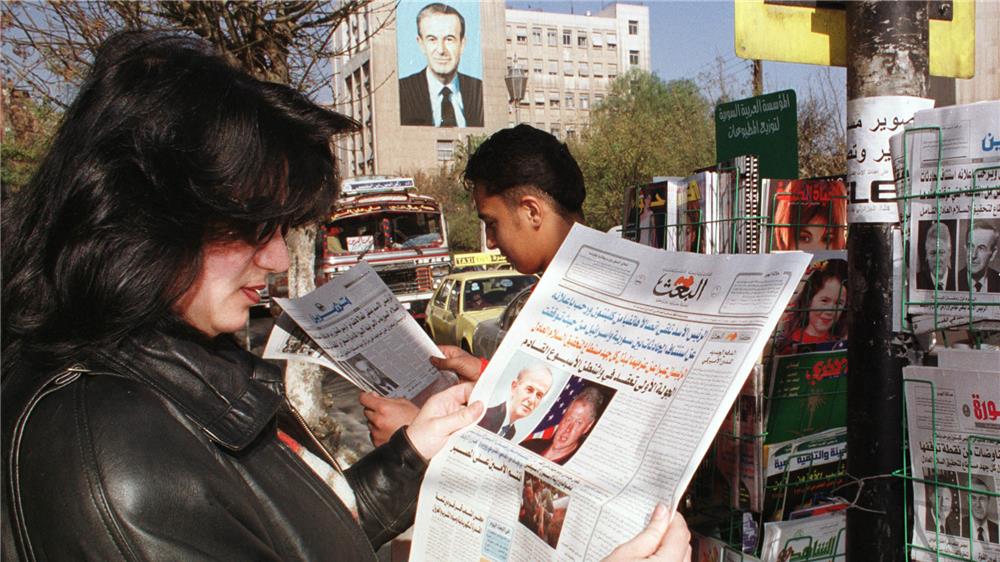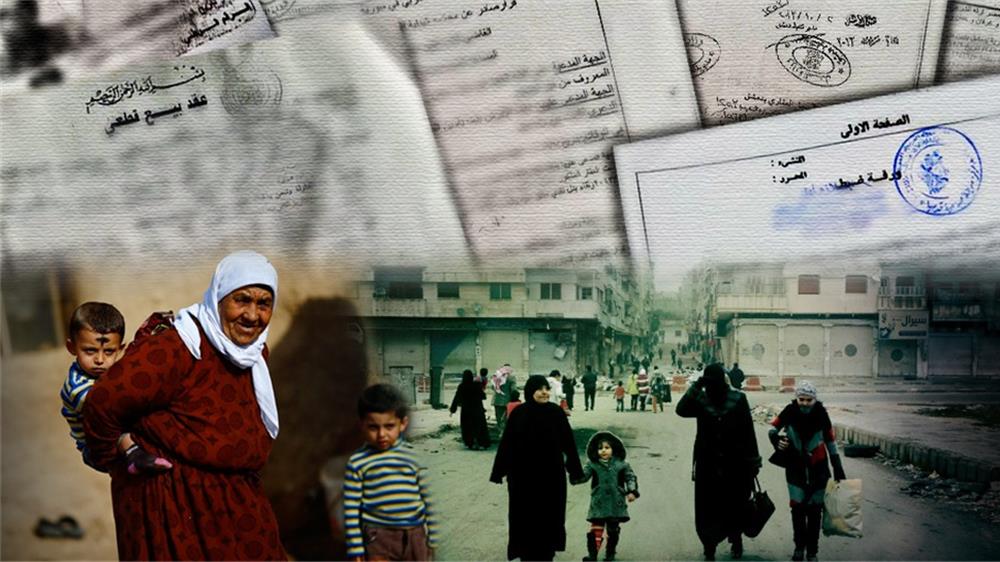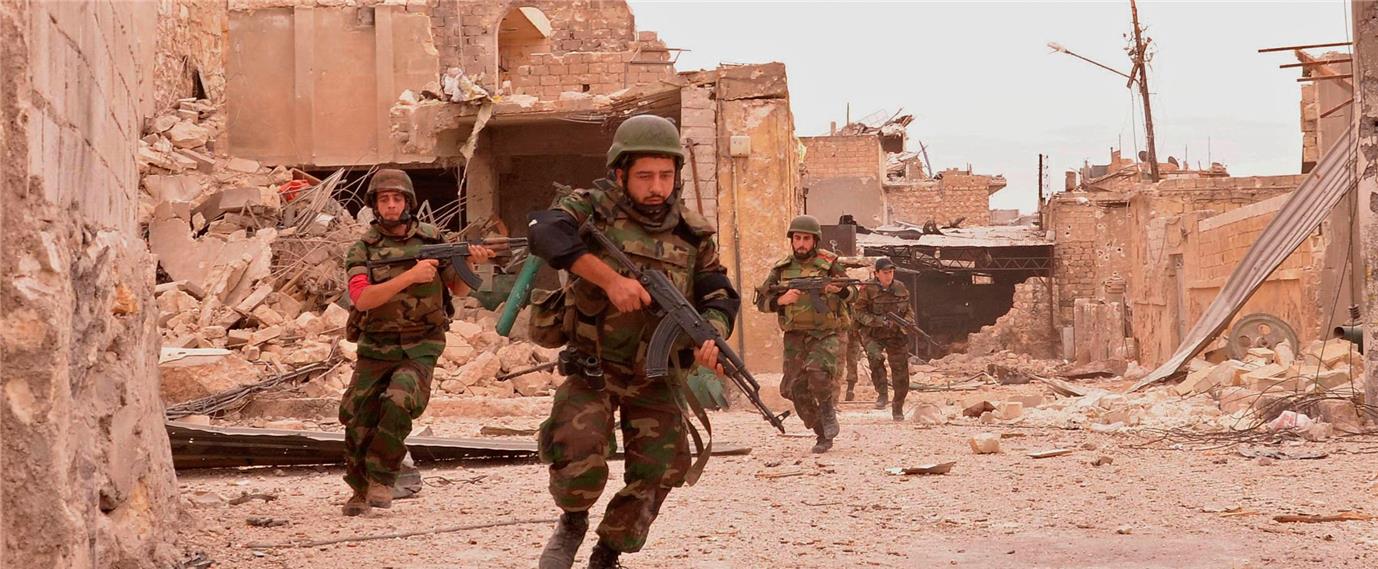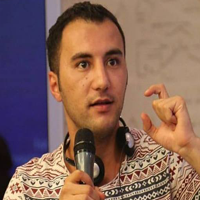يتفاجأ زملائي الصحفيون عندما أسرد لهم قصّتي مع "الصحافة الاستقصائية" في سوريا، فالبعض منهم ينتقدني، وآخر لا يصدّقني، وثالث يطالبني بالكف عن الهراء.
لم أمارس مهنة الصحافة قبل عام 2012.. كنت كحال أي مواطن سوري، لا أسمع بمصطلح "الصحافة الاستقصائية" ولا أعرف معناها أو أي شيء عن ماهيتها. درستُ في كلية الإعلام بجامعة دمشق ولم يتغيّر أي شي في السنوات الأولى، كان جل ما أعرفه عن الأنواع الصحفية هو الخبر والتقرير والمقال، فضلاً عن التحقيقات السطحية التي كانت تجريها الصحف السورية المحلية المترهّلة التي لا تزال تعيش حقبة الخمسينيات، ولا تملك حتى صفحةً على مواقع التواصل الاجتماعي.
في عام 2013 عندما كنت في السنة الثالثة بالجامعة، سمعتُ لأوّل مرّة عن الصحافة الاستقصائية.. أغواني اسمها، رُبّما كنتُ محظوظا أنّني بدأتُ مسيرتي المهنية مع منصّة تُعتبر الوحيدة التي كانت تعمل بالصحافة الاستقصائية في سوريا، وإن لم تكن الوحيدة فإنها حتماً واحدة من منصّتين أو ثلاث تختص بهذا النوع من الصحافة.
لم أجلس على "ديسك التحرير" سابقاً، لم أحرّر أخباراً ولا تقارير، فمنذ أن سمعت بالصحافة الاستقصائية وأنا أساهم بجهود فردية مع قلّة من الصحفيين آمنتْ بها، الأمر الذي لا يزال يدفع كل من أحكي له قصّتي للسؤال: "كيف تعمل بالتحقيقات الاستقصائية قبل أن تجلس في غرف الأخبار؟"، كنت أتحاشى الخوض في النقاش طويلاً لكوني مُقتنعًا بما أفعل.
صحافةٌ لا يُعوَّل عليها
دخلنا عام 2018 ولا يزال قليل من السوريين فقط يعرفون الصحافة الاستقصائية ولا يعوِّلون عليها، ربّما لأن القبضة الأمنية في البلاد تقزّم دورها، وقد اعتاد السوريُّون أن يجدوا في الصحافة السورية دعاية بيد السلطة الحاكمة.

في عام 2006، كُسرت هذه القاعدة بعد أن دخلت "الصحافة الاستقصائية" إلى سوريا، بالطريقة ذاتها التي دخلت بها إلى معظم الدول العربية الأخرى، أي عبر أول شبكة عربية متخصّصة في الصحافة الاستقصائية "أريج".
أنتجت "أريج" عدداً من التحقيقات الاستقصائية التي تُحاكي جوانب هامة في حياة السوريين ابتداء من عام 2006، حيث عالجت المواضيع أموراً خدمية وطبّية وكشفت جوانب فساد تهم السوريين.
كما درّبت عددا كبيرا من الصحفيين السوريين على مساقها "على درب الحقيقة"، وهو ما ساهم في بدء انتشار هذا النوع من الصحافة، وسط الرقابة العالية التي كانت تُفرض على وسائل الإعلام السورية.
بعد النزاع
طرق الربيع العربي أبواب عدّة دول عربية، وكانت سوريا واحدة منها، وعلى خلفية ذلك تأسّست عشرات المؤسسات الإعلامية السورية التي باتت تُعرف باسم "الإعلام البديل" أو "الإعلام الجديد"، غير أن هذه المؤسسات لم تقدّم أي شيء يُذكر في مجال الصحافة الاستقصائية المهنية حتى عام 2016، وبعده اقتصر العمل في هذا المجال على عدّة مؤسسات تُعدّ على أصابع اليد الواحدة.
بالمقابل، فشلت التجربة الأولى لإطلاق أول برنامج تلفزيوني استقصائي عبر التلفزيون السوري الرسمي الذي ينخره الفساد والواسطة والمحسوبية وصعود غير المهنيين فيه، حيث كان مقرّراً إطلاق برنامج يحمل اسم "نصف الحقيقة" عام 2015، ولكنه توقّف في ظروفٍ غامضة، دون أن يبث أي حلقة.
وفي عام 2015 أيضاً، خصّصت كلية الإعلام بجامعة دمشق -وهي الكلية الإعلامية الوحيدة في سوريا- مادة متخصّصة في الصحافة الاستقصائية حملت اسم "مواد استقصاء"، لكنها عبارة عن مساق من 20 محاضرة.
تجارب سورية
في مطلع نوفمبر/تشرين الثاني 2016، أعلن عدد من الصحفيين الاستقصائيين السوريين -جُلّهم ممن تدرّبوا على هذا النوع الصحفي في شبكة "أريج"- عن إطلاق أول وحدة تحقيقات استقصائية سورية حملت اسم "سراج"، وهي اختصار لجملة "Syrian Reporting For Accountability Journalism".
وجاء تأسيس هذه الوحدة "بهدف إجراء نقلة جديدة تجاه خلق نوع جديد من الإعلام في سوريا، بحيث يكون مغايراً عمّا كان سائداً".. يشرح رئيس الوحدة محمد بسيكي.
وأردف: "مع تعاظم الأحداث على الساحة السورية وظهور مستوى عال من الفساد لدى مختلف الجهات الفاعلة على الأرض السورية، تعزّز دورنا كصحفيين من أجل تسليط الضوء على ما يحدث في الأرض وعرضها على الشارع السوري والرأي العام العالمي"، موضحاً أن هدف "سراج" الأساسي هو "خلق الوعي لدى السوريين ومساعدتهم على اتخاذ القرار، وخاصة في مرحلة التحول الحالية التي تشهدها البلاد".
واعتبر بسيكي أن للحالة السورية خصوصية تتمثّل في مزيد من الصعوبة بسبب غياب قانون النفاذ إلى المعلومات، وعدم وجود بيئة آمنة للعمل تحمي الصحفي من تهديدات الأطراف السورية التي تعتبره هدفا أساسيا لها إن كشف ما لا تريد، وهو ما جعل عمل الصحفيين الاستقصائيين في سوريا كمن يحفر في الحجر. واستدرك: "رغم هذا الواقع تمكنا قبل تأسيس سراج وبعدها من تحقيق خطوات مهمة ساهمت في وضع سكة للصحافة الاستقصائية".
وقال أيضاً "نحن الجيل الثاني الذي واكب الصحافة الاستقصائية في سوريا بعد عام 2010، وتمكّن من إدخال مستويات متطورة أكثر ممّا كان موجودا سابقاً"، موضحاً أنه بعد الاحتجاجات التي اندلعت عام 2011 توفَّر هامش من الحرية، لكن المشهد ما لبث أن عاد إلى المربّع الأولى بعد أن علت أصوات الأسلحة، لكون جميع الأطراف السورية تسعى لقتل الصحافة الاستقصائية التي لا تخدم أي طرف ولا تنخرط في ماكينته الإعلامية.
ولم تكن وسائل الإعلام السورية خارج المشهد، حيث انخرطت أيضاً في تجارب إدخال الصحافة الاستقصائية إلى مؤسساتها، ومن بينها راديو "روزنة"، وهو إذاعة سورية تأسست عام 2013 بهدف "تسليط الضوء على ما يحدث في سوريا بطريقة مهنية، مع إعطاء الأولوية القصوى في الأخبار والمواد الصحفية لصوت المدنيين".
وشاركت "روزنة" في كشف ملفات الفساد الخاصة بالجزء السوري ضمن تحقيقات "وثائق بنما" الشهيرة التي تفجّرت عام 2016، كما وضَّحت مديرة موقع الإذاعة ميس قات.
وقالت ميس إن "روزنة نشرت تحقيقاً ضمن 30 تحقيقاً عُرفوا باسم المغسلة الروسية التي تتحدّث عن تورّط شركات في الإمارات العربية المتحدة بملفات غسيل الأموال، كما أنجزت سابقاً عدداً من التحقيقات ضمن المجموعة السورية المستقلة للتحقيقات الاستقصائية، وتشارك حالياً بعدد من التحقيقات في مشروع، نحو صحافة عمق أخلاقية للصحفيين السوريين".
و"نحو صحافة عمق أخلاقية للصحفيين السوريين" مشروع أطلقته شبكة "أريج" للصحافة الاستقصائية مع مؤسسة الغارديان البريطانية ومنظمة دعم الإعلام الدولي، بهدف تمكين الصحفيين السوريين من إنجاز تحقيقات استقصائية بشكلٍ عميق.
وتُشير ميس إلى أن سوريا "تفتقر إلى تجارب استقصائية عميقة وقوية، كما تفتقر إلى صحفيين خبراء في هذا المجال"، لافتةً إلى أن الصحفيين السوريين دخلوا مجال العمل الاستقصائي في السنوات القليلة الماضية فقط.
وعلى غرار روزنة، أدخلت وسائل إعلامية سورية أخرى الصحافة الاستقصائية إلى عملها، حيث شهدت السنتان الماضيتان عدة تجارب في هذا المجال، من أبرزها تجربة صحيفة "عنب بلدي" التي أطلقت وحدتها الاستقصائية في نوفمبر/تشرين الثاني 2016.
تحقيقات أحدثت أثرها
في عام 2014، أنجزتُ أوّل تجربة لي في الصحافة الاستقصائية بدعمٍ من شبكة "أريج".. كنتُ حينها طالباً في السنة الرابعة بكلية الإعلام، وحاز التحقيق على جائزة "أفضل تحقيق استقصائي عربي عن فئة المطبوع" ضمن مؤتمر "أريج" السنوي السابع.
التحقيق تحدّث عن انتشار مافيات تنقلُ ملكية منازل المهجّرين والنازحين وتبيعها دون علمهم، وبعد نشره بعدة أيام تجاوبت وزارة العدل السورية مع التحقيق، وأصدرت تعميماً مخصّصاً لخطاب التحقيق، أغلقت من خلاله الثغرات التي تساعد المزوّرين، وبالفعل انخفض معدَّل الاستيلاء على العقارات بشكلٍ كبير.
في عام 2016، أنجزت شبكة "أريج" تحقيقاً استقصائياً بعنوان "أطفال بلا نسب"، وبعد فترة من نشره طُرحت فكرة إقرار مشروع قانون خاص برعاية الأطفال المجهولي النسب في سوريا.
وعلى غرار هذين التحقيقين، أثبتت عدة تحقيقات أخرى فاعليتها في تحقيق هدفها الأساسي المتمثّل في "تغيير الواقع وليس نقله وحسب".

مساندة
تشهد الصحافة الاستقصائية في سوريا مساندة من بعض المنظمات الدولية المتخصّصة في هذا المجال. وعلى غرار مشروع "نحو صحافة عمق أخلاقية للصحفيين السوريين" الذي يسعى لتدريب صحفيين سوريين على إنتاج تحقيقاتٍ استقصائية، تقوم "الشبكة العالمية للصحافة الاستقصائية" بمد يد العون للجهات والأفراد العاملين في هذا المجال.
وأطلقت هذه الشبكة قسماً عربياً منها، وهو مبادرة تهدف إلى تعزيز ونشر ممارسة الصحافة الاستقصائية بين الصحفيين في الشرق الأوسط وشمالي أفريقيا، وتعزيز البنية التحتية والتكنولوجيا التي تدعمها، وبناء شبكات تواصل مع الصحفيين المهتمين في المنطقة، وإيجاد فرص ارتباط مع زملائهم في جميع أنحاء العالم.
تقول محرّرة القسم العربي في الشبكة العالمية للصحافة الاستقصائية مجدولين حسن: "تصلنا طلبات من قبل العديد من المنظمات السورية المتخصصة في تطوير الصحافة، معظمها ترغب في تطوير عملها في هذا المجال بسبب الحرب والصراع الممتد منذ سنوات".
وتضيف "هناك جوانب غير محكية في الحرب السورية، وتتداخل الأطراف الضالعة بها، وترى المؤسسات السورية أن هذه الجوانب تستحق أن يعرفها العالم، وتعتقد أن الصحفي السوري الموجود في الميدان هو فقط من يمكنه أن يرويها".
وتابعت مجدولين "ما نحاول فعله كمنظمة هو ربط تلك المؤسسات السورية مع جهات عربية أو عالمية بحيث يعمل الطرفان على إنتاج التحقيقات الصحفية معاً أو بناء قدراتها عبر تقديم الاستشارات التدريبية التي تحتاجها، ومساعدتها لإيجاد مصادر تمويل يساعد على بناء قدراتها وضمان استمراريتها".








































